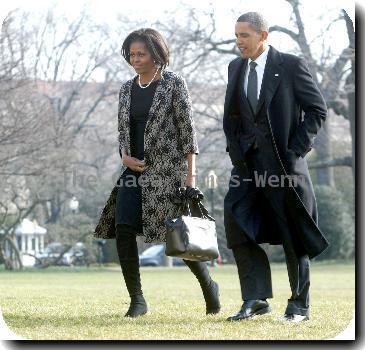Looking to spur civil war in Iraq, al-Qaida tries to reassert strength in Baghdad
By Qassim Abdul-zahra, APFriday, April 9, 2010
Al-Qaida in Iraq says it’s behind embassy hits
BAGHDAD — An al-Qaida front group claimed Friday that it carried out triple suicide bombings outside foreign embassies, underscoring U.S. and Iraqi fears the terror group is attempting to make a comeback.
The bombings were part of a wave of attacks over the last week that claimed about 120 lives in and around Baghdad, which al-Qaida in Iraq appears to have designated its battleground to drag the country into civil war.
National security officials in Baghdad and Washington said the terror network is looking to exploit political chaos left by the disputed March 7 parliamentary elections to regroup. The unrelenting violence also has cast doubt on the abilities of Iraqi security forces that are responsible for protecting the country while American forces begin to head home.
Al-Qaida sees “a very small window of opportunity before this government forms,” U.S. Brig. Gen. Ralph Baker said in an interview Friday.
He said it was still unclear “whether we’re seeing a resurgence, or whether we’re seeing a gasp and a surge, a last-ditch effort to reassert themselves.” But, he said, the latter “would be my best opinion at this point.”
Al-Qaida’s strength in Iraq has been drastically diminished following a series of U.S.-Iraqi offensives over the last few years and a revolt by once-allied Sunni tribal leaders.
But insurgents have still managed to stage a series of high-profile bombings that punctuated periods of calm, and U.S. and Iraqi intelligence officials said they are bracing for more high-profile and deadly attacks.
In a statement posted Friday on a militant Web site, the Islamic State of Iraq, which includes al-Qaida, called the April 4 triple suicide bombings that killed 40 outside the German and Iranian embassies and the Egyptian consulate a “new strike into the heart of the security plan” in Baghdad.
It also said “all diplomatic corps, embassies and international organizations” dealing with the Iraqi government are “legitimate targets.” The group denied involvement with another attack this week, when bombs ripped through apartment buildings and a market, killing at least 50 people, in mostly Shiite areas of Baghdad.
Iraqi security officials, however, blamed al-Qaida for both bombings, as well as execution-style shootings of villagers one week ago as gunmen went door-to-door in a Sunni area just south of Baghdad. About 120 people were killed in all three attacks.
“Al-Qaida carried out these operations in Baghdad to prove it exists,” said Col. Ali Fadhil, an Iraqi army brigade commander in the Iraqi capital. “But we say to them: We also exist.”
More attacks would test both nations’ willingness to stick to the schedule for withdrawing American military forces from Iraq by the end of 2011 as required under a U.S.-Iraqi security agreement. U.S. President Barack Obama also is planning to send home all but 50,000 U.S. troops by the end of August — a deadline that U.S. Gen. Ray Odierno, the top American commander in Iraq, remains committed to meeting.
The attacks on Sunni and Shiite targets alike follow a long-standing al-Qaida strategy of spurring tit-for-tat attacks like the kind that pushed Iraq to the brink of civil war before violence ebbed in 2008. So far, U.S. officials have said they see no indication this time that Shiite militias are taking the bait.
As recently as February, Odierno called al-Qaida in Iraq “a shadow of what it once was.” But a senior U.S. official in Washington pointed to the quick succession and planning of the recent attacks as evidence of the terror group’s organizational ability.
The U.S. official, who spoke on condition of anonymity to discuss the issue more candidly, also cited “a significant number” of al-Qaida militants and sympathizers with easy access to enough explosives “to make the next several months rather bloody.”
Officials said al-Qaida is recruiting suicide bombers from Mosul and Diyala province to attack Baghdad. Baker said those include a 17-year-old who was shot in the foot and arrested last week for trying to blow up an explosives-packed car outside the French Embassy in central Baghdad. The attacker, who was from the former al-Qaida stronghold city of Mosul, told interrogators he was galvanized mostly by the continuing presence of U.S. troops in Iraq.
Further infuriating Sunnis, Shiite Prime Minister Nouri al-Maliki for months has lumped al-Qaida in with former members of Saddam Hussein’s ousted Baath Party as threats to Iraq. Many Baathists joined the party merely to get government jobs and attend college during Saddam’s Sunni-dominated regime.
Baker said U.S. officials also mistakenly blur the lines among Sunni insurgent groups to describe attackers as al-Qaida — an error that could give the terror group more credibility and supporters on paper than in reality.
Anthony Cordesman, a terror and war expert at the Center for Strategic and International Studies in Washington, said overlapping interests and resources among Iraqi insurgent groups make it hard to distinguish between their members. But the bottom line, he said, is that al-Qaida will remain a threat to Iraq for years beyond the American military’s planned withdrawal at the end of 2011.
“I have heard nobody say that this is going to be over by 2012,” Cordesman said.
Associated Press Writers Elizabeth A. Kennedy and Saad Abdul-Kadir in Baghdad and Maamoun Youssef in Cairo contributed to this report.
Tags: Baghdad, Barack Obama, Bombings, Embassies, Iraq, Middle East, Ml-iraq, North America, Terrorism, United States

